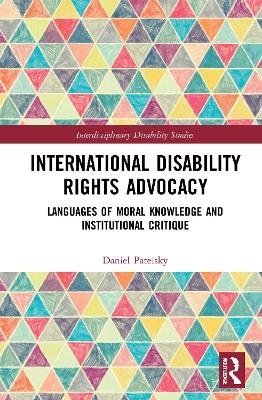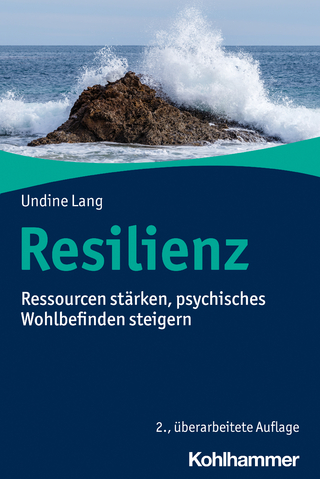
International Disability Rights Advocacy
Routledge (Verlag)
978-0-367-46742-5 (ISBN)
This book provides insight into the globally interlinked disability rights community and its political efforts today. By analysing what disability rights activism contributes to a global power apparatus of disability-related knowledge, it demonstrates how disability advocacy influences the way we categorise, classify, distribute, manipulate, and therefore transform knowledge.
By unpacking the mutually constitutive relations between (practical) moral knowledge of international disability advocates and (formal) disability rights norms that are codified in international treaties such as the UN Convention on the Rights of Persons with Disabilities (CRPD), the author shows that the disability rights movement is largely critical of statements that attempt to streamline it. At the same time, cross-cultural disability rights advocacy requires images of uniformity to stabilise its global legitimacy among international stakeholders and retain a common meta-code that visibly identifies its means and aims. As an epistemic community, disability rights advocates simultaneously rely on and contest the authority of international human rights infrastructure and its language.
Proving that disability rights advocates contribute immensely to a global culture that standardises what is considered morally and legally ‘right’ and ‘wrong’, thereby shaping the human body and the body politic, this book will be of interest to all scholars and students of critical disability studies, sociology of knowledge, legal and linguistic anthropology, social inequality, and social movements.
Daniel Pateisky is a lecturer at the University of Vienna, Austria, an advocate in Austrian and international disability policy and social work, and a member of Vienna’s Independent Monitoring Committee for the Implementation of the UN Convention on the Rights of Persons with Disabilities. He holds a doctorate in Sociology from the University of Halle-Wittenberg, Germany, that focussed on international disability human rights and drew on his interdisciplinary background in development studies and linguistics. His research revolves around critical, post-colonial, and participatory approaches to dis/ability, international translation of human rights, and the nexus between older persons’ rights, care labour, and migration. He has been assisting young people with chronic illnesses, consulting in student disability services in higher education, and helping develop reasonable accommodation measures.
1. Introduction
PART I
2. Theory with unstable referents
3. Methodical approach
PART II
4. Reflecting languages and symbols
5. Paradigmatic lines and actor relationships
6. Reconciling multiple knowledges
7. Categorising and explaining as knowledge change
8. Advocacy knowledge as political-legal intervention
9. Final discussion
| Erscheinungsdatum | 25.03.2021 |
|---|---|
| Reihe/Serie | Interdisciplinary Disability Studies |
| Zusatzinfo | 6 Line drawings, black and white; 6 Illustrations, black and white |
| Verlagsort | London |
| Sprache | englisch |
| Maße | 156 x 234 mm |
| Gewicht | 435 g |
| Themenwelt | Sachbuch/Ratgeber ► Gesundheit / Leben / Psychologie ► Lebenshilfe / Lebensführung |
| Recht / Steuern ► EU / Internationales Recht | |
| Recht / Steuern ► Öffentliches Recht ► Völkerrecht | |
| Sozialwissenschaften ► Soziologie | |
| ISBN-10 | 0-367-46742-9 / 0367467429 |
| ISBN-13 | 978-0-367-46742-5 / 9780367467425 |
| Zustand | Neuware |
| Haben Sie eine Frage zum Produkt? |
aus dem Bereich


